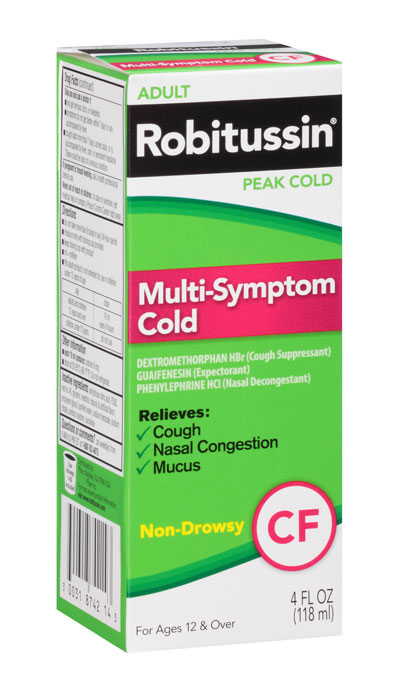States’ Limits On OTC Dextromethorphan Sales Could Force Congress’ Hand
This article was originally published in The Pink Sheet
Executive Summary
US House legislation banning the sale of DXM OTCs to consumers under age 18 likely stands the same chance right now as previous versions that have failed, but CHPA expects an increasing number of state laws could spur future action.
The number of states that age-restrict sales of OTC dextromethorphan cough/cold drugs soon could reach a “tipping point” and spur Congress to enact a nationwide requirement to curb abuse of the ingredient by younger consumers, the Consumer Healthcare Products Association predicts.
CHPA prefers a nationwide age restriction on purchases of the products over varying state laws, saying that latter causes confusion among consumers and for retailers operating in states that don’t age-restrict the sales and in others that do. The trade group also backs a nationwide age restriction on DXM sales as a better option than a proposal FDA floated in 2010 to make all products containing the ingredient prescription-only. An advisory committee that year voted against a proposed controlled substance scheduling, which could have effectively made the ingredient entirely Rx. (Also see "FDA Panel Says Leave DXM Unscheduled For Now, Urges Congressional Action" - Pink Sheet, 20 Sep, 2010.).
CHPA noted the spread of state laws as legislation again is introduced in Congress for a nationwide ban on sales of DXM OTCs to minors. The DXM Abuse Prevention Act of 2017, HR 1271, was filed March 1 by Reps. Bill Johnson R-OH, and Doris Matsui D-CA. A companion bill is expected in the Senate, though its filing could be delayed by lawmakers’ focus on the American Healthcare Act unveiled March 6 to replace the Affordable Care Act, a key plank of President Trump’s election campaign.
While AHCA could affect some state programs such as Medicaid, state lawmakers are also giving attention to other issues, such as DXM-containing products. Legislators in Nevada, Oregon and Texas are considering proposals to prohibit sales of DXM-containing products to consumers under 18.

Sales of Robitussin and other OTC cough/cold products containing dextromethorphan already are age-restricted in 12 states.
“We have seen a lot of progress in the states,” said Mike Tringale, CHPA’s senior director for communications and public affairs.
Tringale said 12 states already have age-restricted DXM sales and more could adopt rules this year. “After about five more states, we hope to reach a tipping point,” he said in an interview.
Nevada SB 159, Oregon SB 743 and Texas SB 916 were introduced in February and assigned to a health topics committee in each Senate. With legislation session schedules varying around the states, it is likely that bills calling for the change will be introduced in additional states this year.
Alaska, Delaware and Florida enacted DXM sales laws in 2016; California in 2012 was the first state to make the change. Others with similar laws are Arizona, Kentucky, Louisiana, New Jersey, New York, Tennessee, Virginia, and Washington. (Also see "DXM Sales Age Restriction Reaches Florida; CHPA Navigates PSE Road" - Pink Sheet, 8 Apr, 2016.)
HR 1271: Barcoded Restriction
In Congress, HR 1271 sets a national requirement that purchasers must be age 18 or older to buy medicines containing DXM. A similar requirement was in Johnson and Matsui’s bill which did not move out of committee during the previous congressional session; a Senate version met the same fate. Members of Congress have introduced bills to age-restrict DXM sales since 2006; legislation passed the House in 2006, 2007 and 2008 before stalling in the Senate. (Also see "Industry Roundup: Warning Letters, DXM Bill, Nutrition Label Update" - HBW Insight, 30 May, 2016.)
HR 1271 requires retailers selling DXM-containing OTCs to establish a verification system to ensure sales are not made to consumers under 18. The systems should include signage stating the age restriction and assigning one on-duty employee to approve sales of the products.
The latest bill is more specific on how products are coded with a product “identifier” on packaging. “A universal product code, universal product number, bar code or similar identifier to allow an electronic point-of-sale system to recognize that the sale of the covered drug is prohibited to those under 18,” the legislation says.
The bill also states that existing state DXM regulations would be considered in compliance with the federal law. HR 1271 also would require manufacturers to nominate organizations to communicate the requirements to retailers, “including by making available upon request materials (which may include signage, manuals, materials, or programs) to assist with educating employees.”
In a March 3 release by CHPA, Matsui is quoted as saying the bill is “a common-sense way to ensure cough medicine remains accessible to those who use it appropriately, and inaccessible to those who seek to abuse it.”
The seven-term representative of a Sacramento-area district said advocates, retailers and manufacturers already have made tremendous progress in curbing DXM abuse of by teens. “By creating a national standard, we build on this progress, and protect the health and well-being of teens across the country,” Matsui said.
The potential that separate states would set different policies on consumer access to pseudoephedrine-containing nonprescription drugs influenced Congress in 2006 to pass the Combat Methamphetamine Epidemic Act, supported by the industry, to require behind-the-counter sales of the products in pharmacies and to set daily and monthly purchase limits for consumers. (Also see "Combat Meth Act Compliance Can Trip Up Drug Retailers" - Pink Sheet, 24 Sep, 2007.) Even so, multiple states have adopted more stringent limits on PSE-containing OTC sales. (Also see "To Curb PSE Diversion, Retailers Lead By Example With Emphasis On Tamper-Resistant Products" - Pink Sheet, 19 Sep, 2014.)
From the editors of The Tan Sheet.
